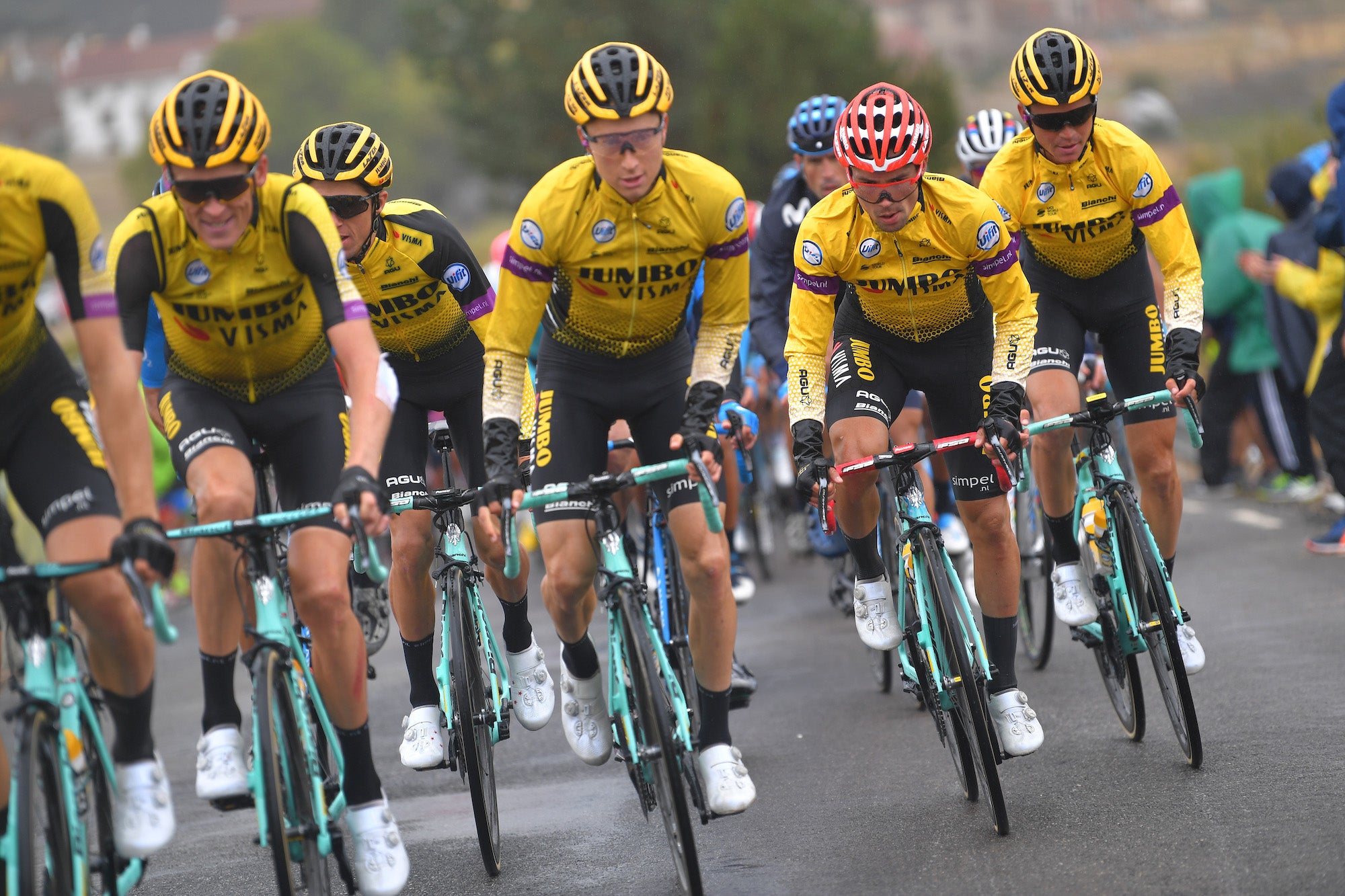VN Podcast: Jumbo-Visma's Plugge — racing should take place without spectators

Photo: Tim de Waele/Getty Images.
Will pro cycling actually return in August?
The answer to that question could depend on whether the safety protocols developed by the UCI and the sport’s other stakeholders pass the test of national governments and international health officials. The details of those protocols have yet to be finalized, as representatives from races, teams, and other groups discuss the proposed plans.
Jumbo-Visma manager Richard Plugge, who is vice president of the teams group AIGCP, said he believes a cornerstone of any plan is to limit the number of people attending the races, and that means limiting spectators at the events.
“If we would be racing today, in my opinion it should be without public along the road, with testing before we get into the races and all kinds of things like that,” Plugge told VeloNews. “And the smaller the group, the better it is around the race. Less journalists, less organization people, less people from teams, so less staff.”
You can listen to the full interview with Richard Plugge on The VeloNews Podcast.
Plugge recently joined the VeloNews Podcast to share his opinions on the UCI’s proposed schedule and how Jumbo-Visma plans to tackle the highly condensed calendar, which places the Tour de France in September and has overlapping dates for the Giro d’Italia, Vuelta a España, and many of the one-day classics. Plugge said Jumbo-Visma’s tentative plan is to divide the team into smaller groups of riders and team staff, and then have those groups travel to and from races and training camps together as one cohesive unit.
“One group of riders will follow one line and stay together with the staff to keep the group solid for all of these months and make it a family, more or less,” Plugge said. ” And that is the way we are looking at it.”
The proposed UCI calendar has drawn some criticism in recent days, with fans and even team directors labeling it as too packed with races, giving teams and riders little time for rest and recovery, or time to quarantine themselves for crossing international borders.
Plugge acknowledged the hurdles placed on teams by the calendar, but stressed the importance of the tentative calendar for the survival of professional cycling teams and other organizations. In recent weeks multiple teams have furloughed staff, trimmed salaries, and even announced the impending departure of marquee sponsors. In his eyes, the proposed schedule represents a lifeline for the sport.
“Now it’s a crisis and everybody needs racing, so let’s be happy with as many races as possible in the calendar,” Plugge said. “We will see at the end of the day how many [races] are held because there will be some cancellations coming up.
Plugge’s perspective on the calendar and the plans to return from the coronavirus shutdown are informed by his own personal experience with the virus. Plugge came down with the virus in early March, and he was even hospitalized for eight days and hooked up to supplemental oxygen.
If anything good comes from the crisis, Plugge believes it is the understanding that the stakeholders in the sport rely on each other for survival.
“The vulnerability of the sport is really clear, and it’s open and on the table and everybody understands that,” Plugge said. “Organizers understand they need the teams and the teams understand they need the race organizers. Hopefully this opens things up for later.”